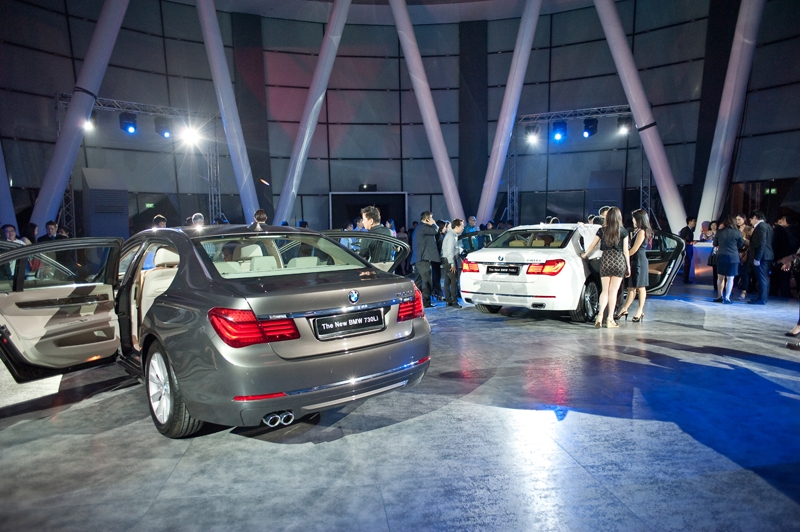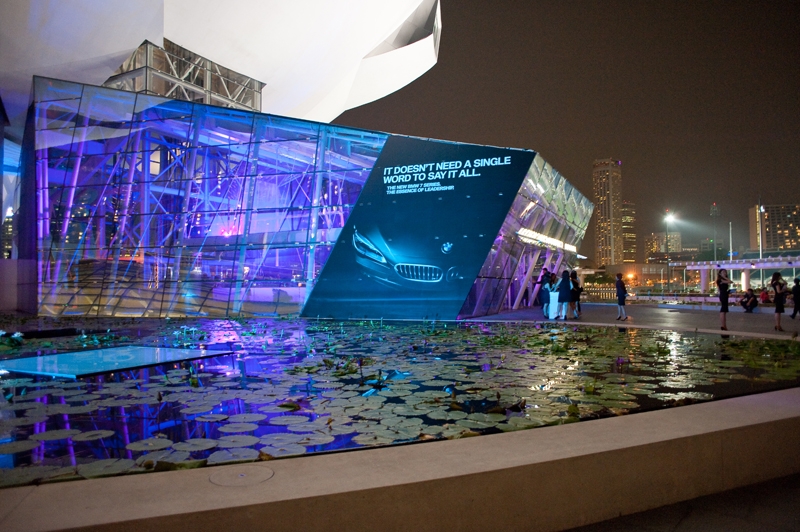First introduced back in 2008, the F01 7 Series receives some needed refreshing touches to keep it relevant.
Photos: Low Fai Ming
BMW Asia launched the new BMW 7 Series – the flagship BMW model that embodies sporting elegance, refined powertrain technology and luxurious comfort in equal measure – which is set to reinforce its position as the most innovative sedan in the luxury segment.
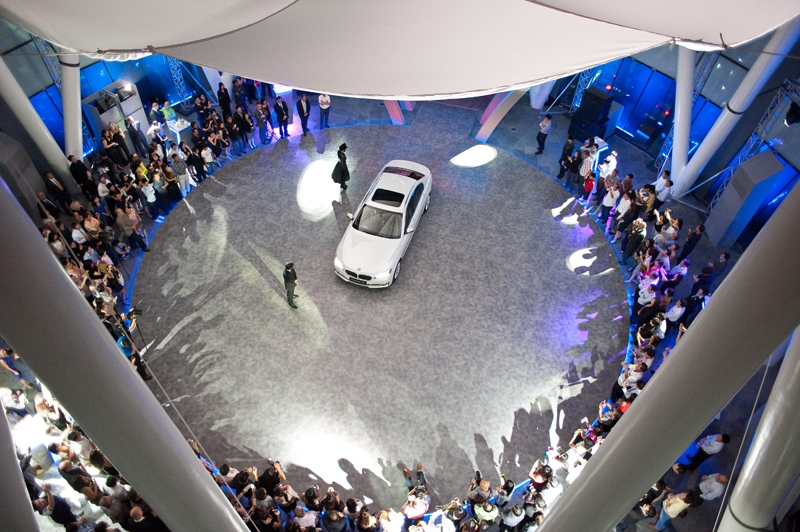
The new BMW 7 Series is now equipped with an impressive spread of chassis wizardry that helps give the ride comfort a noticeable boost. The new 750Li and 740Li which now feature new engines and drivetrain, not only enjoy significant performance enhancement but up to 25 percent and 21 percent in fuel efficiency and CO2 emissions respectively. Meanwhile, the new BMW 730Li is faster and more efficient with up to 11 percent increase in fuel efficiency and CO2 emissions. Apart from that, the new 7 Series now comes with an enhanced BMW ConnectedDrive portfolio which includes impressive new features that strive to improve this flagship limousine's overall safety, convenience and infotainment features.
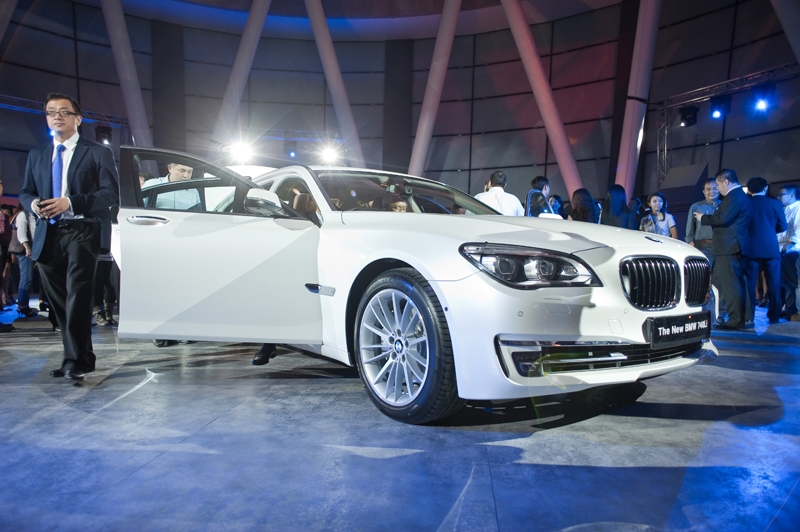
The large, full-width air intake dominating the lower section of the modified front apron is now split into three sections, a pair of chrome bars marking its outer sections and adding further depth to the car's sporty looks. Two narrow vertical air intakes sit beyond even the LED foglamps to the left and right of the wide intake. Adhering to the Efficient Dynamics philosophy, these are included as part of the “air curtain” technology, which lowers fuel consumption at higher speeds by forcing the air to flow more aerodynamically around the front wheels.
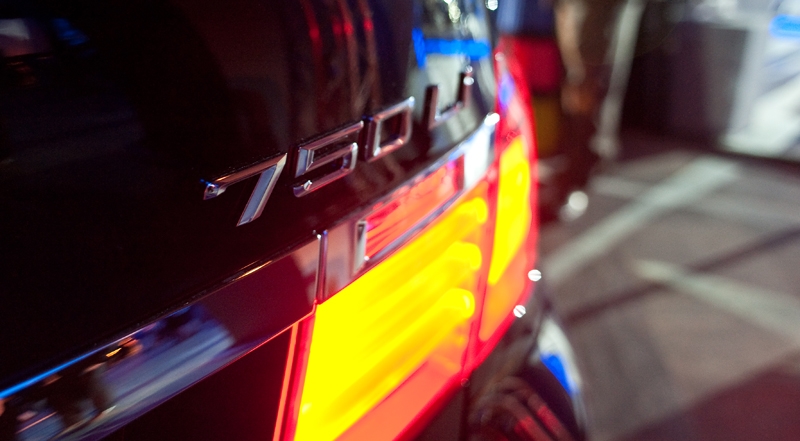
Making its debut under the bonnet of the BMW 750Li is an upgraded BMW TwinPower Turbo eight-cylinder petrol engine with two turbochargers, Valvetronic, Double-VANOS and High Precision Direct Injection. The 4,395 cc eight-cylinder powerplant retains the impressively smooth assurance and spirited power delivery of its pre-update days. However, optimised high pressure direct injection and reduced charge cycle losses — thanks in the main to the seamlessly variable control of intake valve lift — have pushed its performance potential to a higher level than its predecessor and substantially reduced its fuel economy and emissions. In its latest development stage, the engine generates peak output of 450 hp (+ 10 percent) and unleashes peak torque of 650 Newton metres (+ 8.5 percent) between 2,000 and 4,500 rpm.
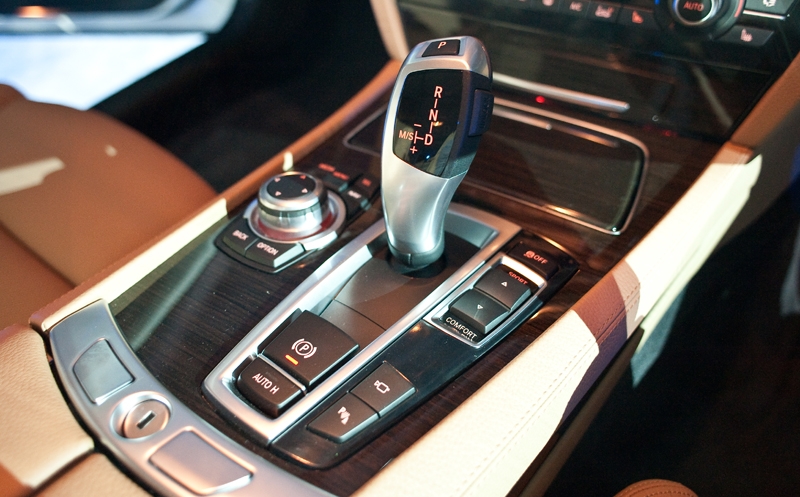
The engine teams up with the eight-speed automatic transmission, allowing the BMW 750Li to sprint from 0 to 100 km/h in just 4.8 seconds and progress on to an electronically governed top speed of 250 km/h. The eight-cylinder engine belies its improved performance with better efficiency than ever; with overall fuel consumption of 8.6 litres per 100 kilometres and CO2 emissions recorded at 199 g/km, the BMW 750Li trumps its less powerful predecessor by a clear 25 percent.
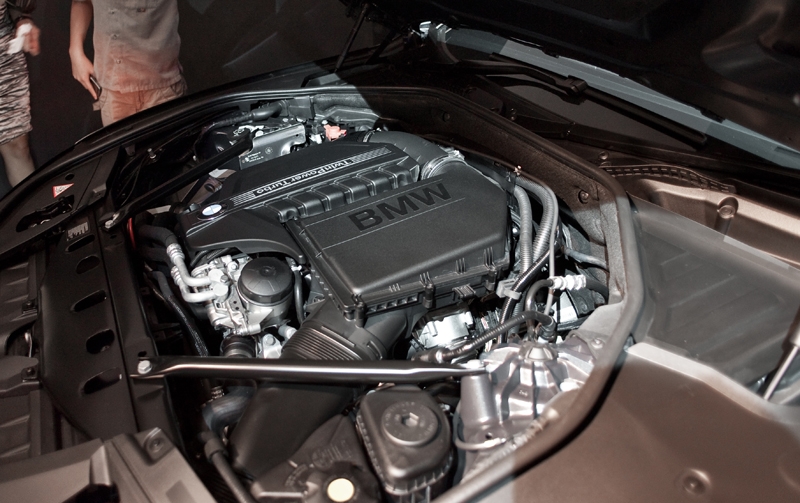
The BMW 740Li has a 3-litre six-cylinder in-line engine that stands out with its majestic power and unparalleled high-revving character. The state-of-the-art powerplant is one of the first waves of highly efficient petrol engines to bring together BMW TwinPower Turbo technology with High Precision Direct Petrol Injection, twin-scroll turbocharging, Double-Vanos variable camshaft timing and Valvetronic variable valve timing. The BMW 740Li is packed with 320hp with a maximum 450 Newton metres of torque on tap from as low as just 1,300 rpm.
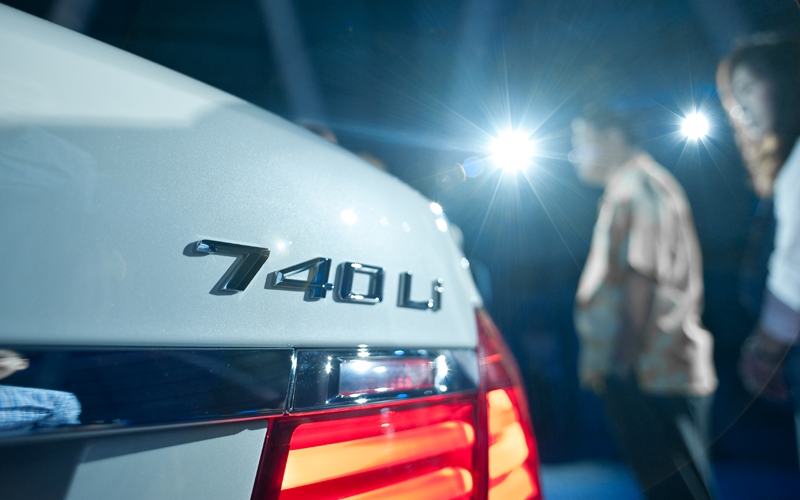
The BMW 740Li has also become quicker (+5 percent; 0-100km/h at 5.7 seconds), more fuel efficient (+21 percent; 7.9 litre/100km) and environmentally-friendlier (+21 percent; 184 g/km CO2 emissions) compared to its predecessor.
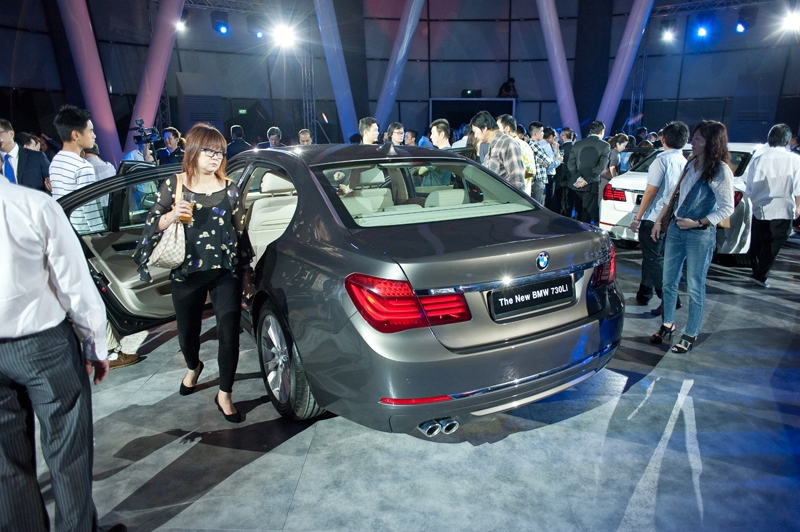
The BMW 730Li, meanwhile, is equipped with a proven 3-litre straight-six petrol engine as before. Now with the new eight-speed automatic transmission, the BMW 730Li has similarly become faster (+4 percent; 0-100km/h at 7.5 seconds), has better fuel efficiency (+11 percent; 8.7 litre/100km and lower CO2 emissions (+11 percent; 202 g/km) against its predecessor working with a six-speed transmission.
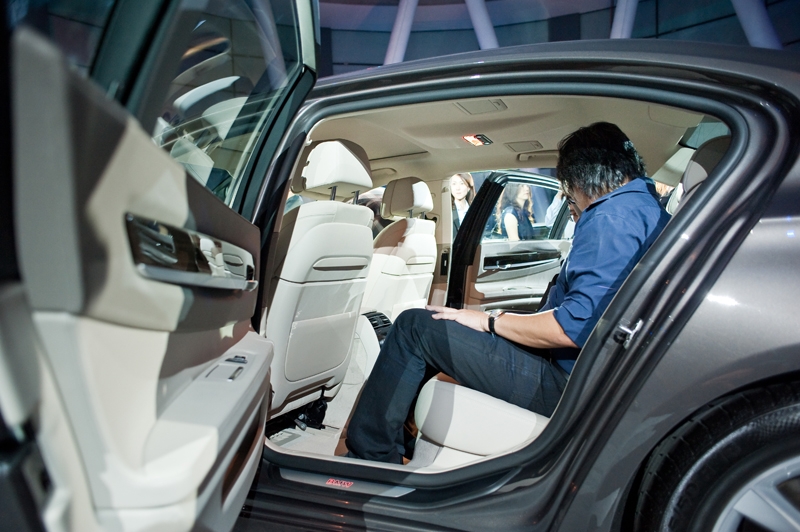
The new ECO PRO mode with the addition of the coasting mode, and proactive driving assistant functions, helps the BMW 7 Series driver to maintain an extra-efficient and economy conscious driving style. The new coasting mode, in particular, has been designed to decouple the combustion engine when it is overrunning at speeds between 50 km/h and 160 km/h. In coasting mode, the new BMW 7 Series is subject to a far lower rate of deceleration as it freewheels along the road with no engine braking effect and minimal fuel consumption.
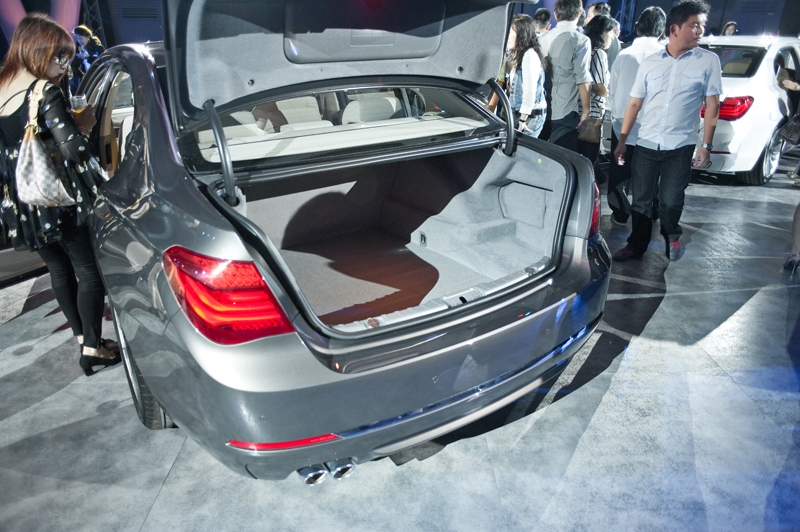
This way, the kinetic energy built up by the vehicle can be harnessed and — through forward-thinking driving aided by the proactive driving assistant — translate into fuel savings of up to five percent. The coasting function is clearly visualized for the driver's benefit in the multifunctional instrument cluster and the central Control Display, and can also be deactivated if desired.
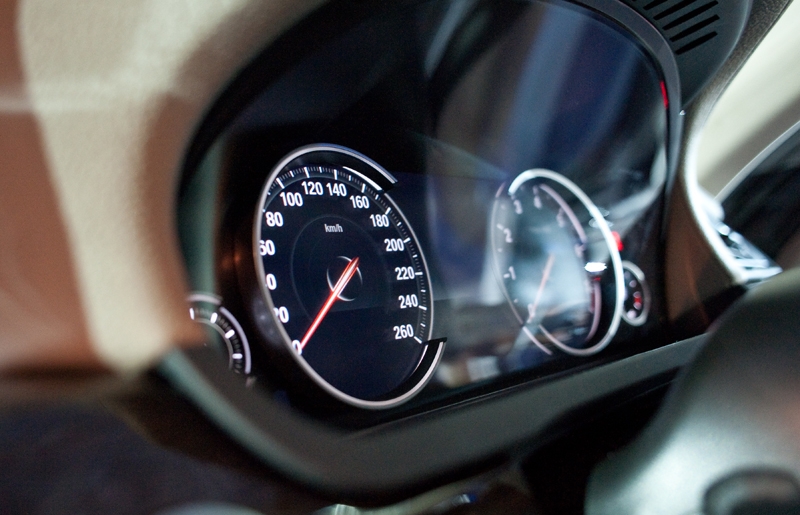
The latest-generation Navigation System Professional is compelling at first glance for its revised design and honed operating system. The tried-and-tested menu navigation has been consciously retained and augmented by further functions. The user interface has benefited from a complete graphic revision and now comprises 3D elements throughout, while the entire architecture of the individual menus is now presented in virtual, three dimensional spaces. Thanks to its 1.3 GHz processor and dedicated 3D graphics card, using the system with its high-quality animations and dynamic transitions is an experience, supported by imagery boasting unprecedented levels of contrast and brilliance.
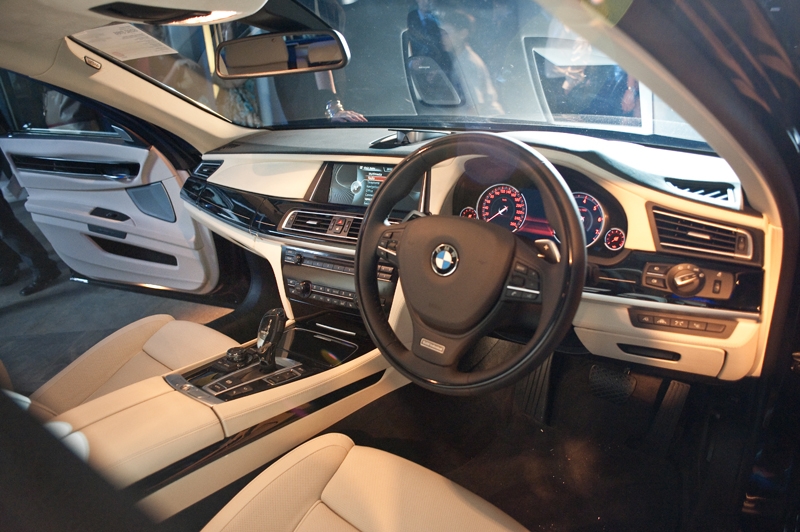
The BMW 7 Series is now available with Adaptive LED headlights which provide a further safety boost when driving at night. The bright white light it emits illuminates the road ahead with an exceptional intensity. Together with High-Beam Assistant technology, Adaptive LED Headlights with cornering lights, as well as variable headlight distribution, continue to represent the ultimate in lighting technology. The Anti-dazzle High-Beam Assistant in conjunction with Adaptive LED headlights ensures that the driver can enjoy optimal visibility at all times without having to switch manually between high and low beam. The dazzle-free high-beam assistant regulates the main beam of the headlights for optimum illumination of the route and thus reduces the burden on the driver.
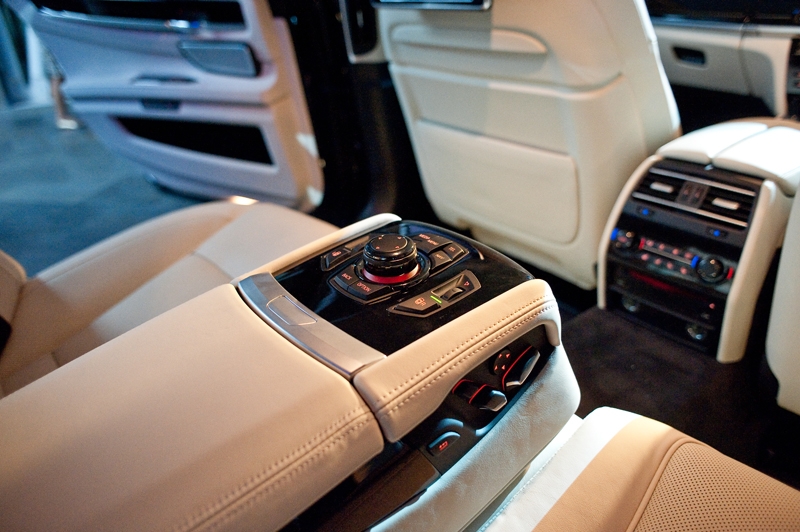
When the system is activated, an image sensor on the inside of the front mirror monitors the lighting conditions and the traffic ahead at a distance of up to 400 metres. The feature uses these sensor images to determine the strength of the high beam and varies it seamlessly. Meanwhile, oncoming traffic is registered at a distance of approximately 1,000 metres - a mechanism in the headlight specifically covers points in the high beam and dynamically aligns it to rule out any risk of dazzling.
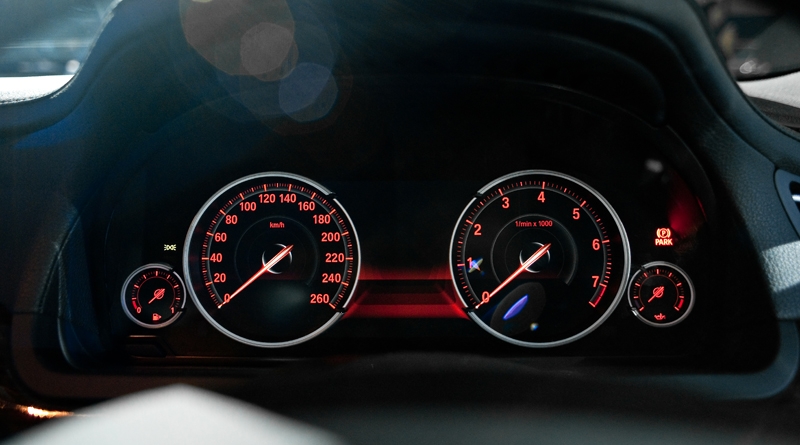
Prices are set at $379,800 for the 730Li, $425,800 for the 740Li, $518,800 for the 750Li and $652,800 for the top of the range 760Li. All prices include COE.
